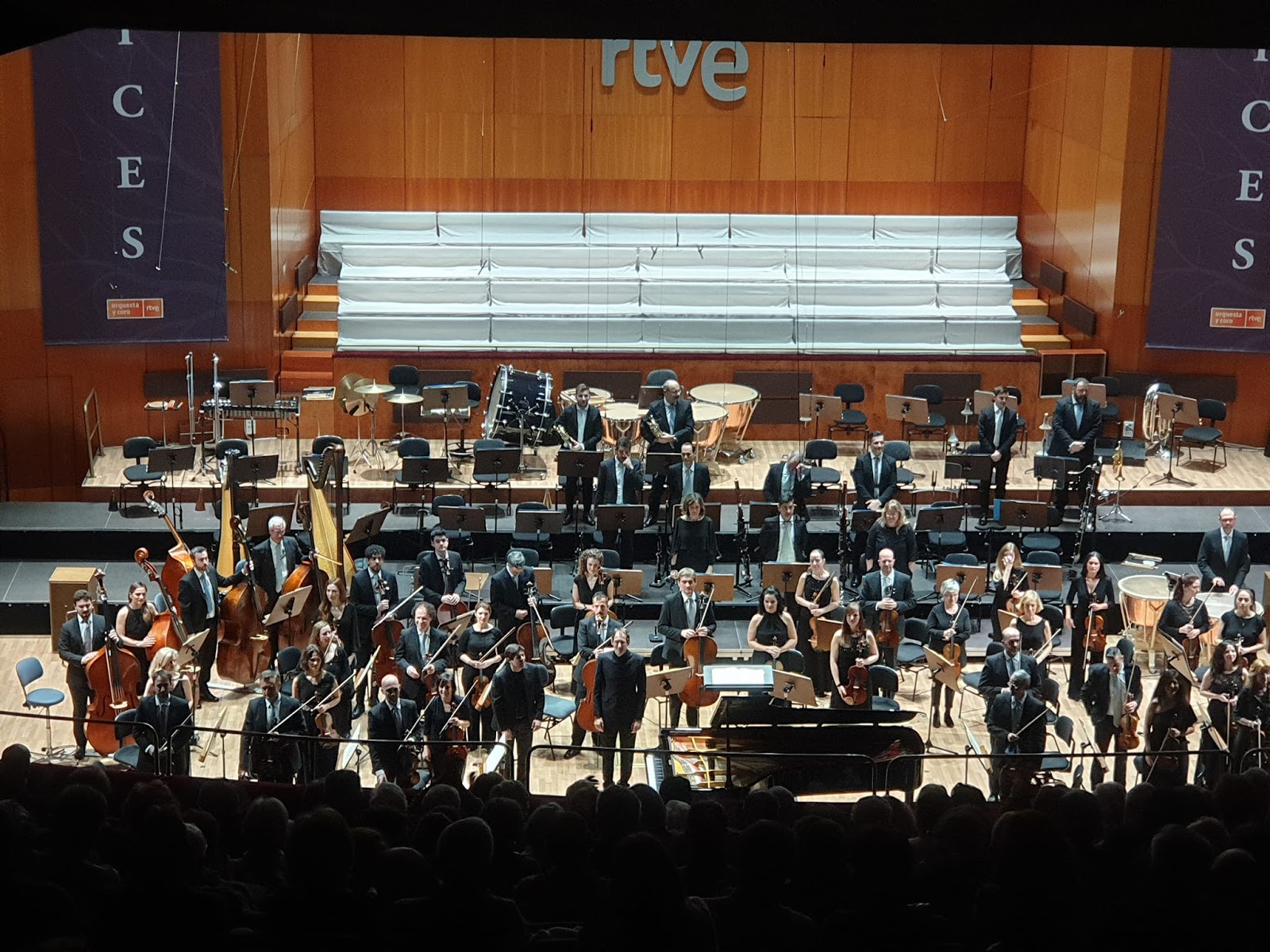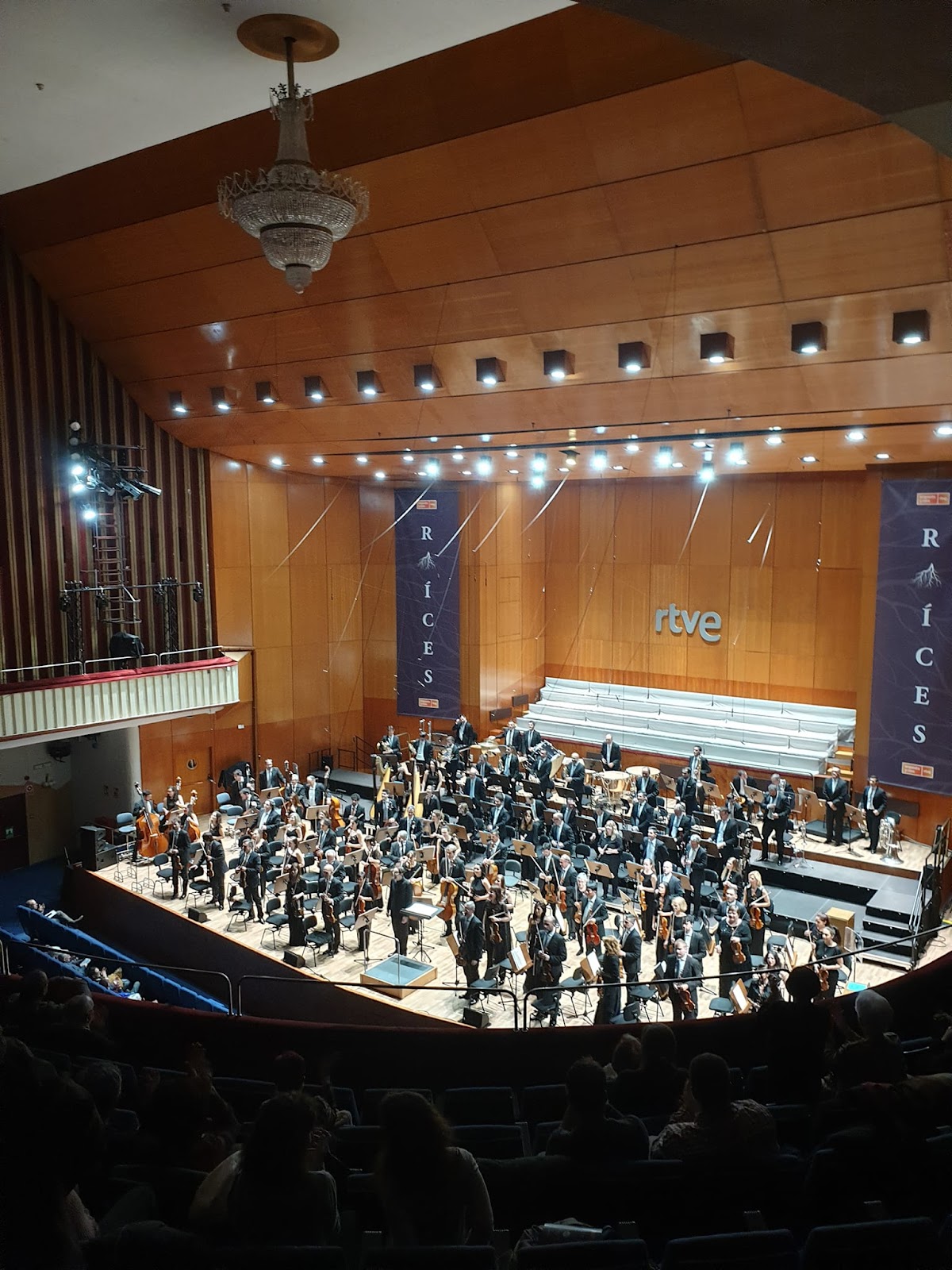Madrid, 16 de febrero de 2023.
La obra y el legado de Friedrich Nietzsche, no solo supusieron una revolución en la filosofía, sino que contribuyeron, para bien o para mal, en el rumbo político de la primera mitad del conflictivo siglo XX. Su obra magna, Así Habló Zaratustra, publicada entre 1883 y 1890, trata conceptos revolucionarios para el pensamiento: el Übermensch o el superhombre (tan malinterpretado décadas más tarde por el repugnante fascismo), la muerte de Dios, la voluntad de poder, y el eterno retorno.
Así llegó esta obra maestra de la filosofía a un joven Richard Strauss a finales del siglo XIX. Inspirado por la aventura sapiencial de este filósofo místico quien interpela al sol y a la naturaleza, creó un poema sinfónico al que puso el mismo título. Poco imaginaba Strauss que el inicio de su obra, en la que Zaratustra sale de su cueva y mira al sol resplandeciente iba a ser inmortalizado, y repetido ad nauseam en la televisión, después de la película de ciencia ficción "2001, Una odisea en el Espacio". Pero cuando termina la última nota de órgano de esta fanfarria inicial, continúa una potente, poderosa obra que en vivo tiene una espectacularidad, una fuerza que no se aprecia por completo en vídeo o en disco, como si se fuera a introducir por los poros del cuerpo del espectador. Una riqueza orquestal, una sucesión de melodías tan hechizantes como elegíacas, alternándose con momentos electrizantes. Ya dijo Strauss que se trataba, hasta ese momento de su mejor obra, aunque al joven autor aún le quedaban más de cinco décadas de vida por delante para regalar obras igualmente magistrales a la humanidad.
Desde la archiconocida fanfarria inicial, hasta la envolvente, catártica Canción del Caminante Nocturno que cierra la obra, cuando la noche se abre paso, y en la que la humanidad (representada por cuerda y flauta, en una melodía elegíaca de infinita belleza) y la divinidad (representada primero por el metal y luego por el contrabajo) se enfrentan en una lucha final en la que la fuerza de las profundidades, la naturaleza, resulta victoriosa, con ese pizzicato del contrabajo que cierra la obra y se impone a la belleza celestial... esta obra deja al espectador en éxtasis, casi incapaz de articular palabra tras todo ese potente viaje orquestal que refleja el despertar a la naturaleza de la humanidad.
En el concierto de anoche, la Orquesta de Radio Televisión Española bajo la batuta de Pablo González, nos ha ofrecido un programa doble: el Concierto para piano y orquesta nº4 de Ludwig van Beethoven y Así Habló Zaratustra, de Richard Strauss. En la obra beethoveniana, al piano se encontraba ni más ni menos que Javier Perianes, uno de los pianistas españoles con mayor proyección internacional. Ciertamente, Perianes nos regaló una noche de virtuosismo, en una obra novedosa por dejar al piano que comience la obra, exponiendo el tema principal, y no la orquesta como es costumbre. La orquesta en cambio estuvo más bien contenida, y no muy rica en volumen, pese al buen desempeño y a la soltura de la orquesta en este repertorio. Como propina, Perianes interpretó la Arabesca nº2 de Claude Debussy, en una interpretación sensible, llena de encanto, capaz de crear un ambiente acogedor e íntimo en una sala tan grande.
La segunda parte comenzó de forma inusual: Pablo González se dirigió al público, y recitó dramáticamente el comienzo del libro de Niezsche. Lo hizo de una manera tan brillante como un actor. A continuación la orquesta acometió la obra de Strauss, con una intensidad increíble y que no había visto en la orquesta la vez pasada que les vi a las órdenes de González, con la Tercera de Mahler, ni en 2015 cuando vi esta obra interpretada por Carlos Kalmar. Desde los metales que abren la obra hasta las cuerdas transmitieron al público la fuerza de esta obra. Y de eso, el sonido de la orquesta dio fe en una interpretación memorable, desde el solo de violonchelo, a la apoteosis de las cuerdas en la primera mitad de la obra, que tuvieron un sonido electrizante, si bien esa fuerza también hacía que a veces, en los momentos donde atacaba toda la orquesta, ese sonido se empastara. Pero ninguna limitación pequeña puede eclipsar lo que fue una interpretación verdaderamente memorable.
Al acabar el concierto, el público no tuvo más remedio que salirse del aura de la obra, pasando de unos tímidos aplausos a una atronadora ovación en pocos segundos. Se cierra así un concierto que tardaremos en olvidar, que es así como debe ser cada interpretación de esta obra straussiana.
Madrid, February 16, 2023.
The work and legacy of Friedrich Nietzsche not only represented a revolution in philosophy, but also contributed, for better or worse, to the political course of the first half of the troubled 20th century. Thus Spoke Zarathustra, his celebrated work, published between 1883 and 1890, brought revolutionary concepts in Thought history: the Übermensch or Overhuman (so misinterpreted decades later by the revolting fascism), the death of God, the will to power, and the eternal recurrence.
This is how this masterpiece of philosophy came to a young Richard Strauss at the end of the 19th century. Inspired by the sapiential adventure of this mystical philosopher who questions the world and nature, he created a symphonic poem named as Nietzsche's work. Little did Strauss know that the opening fanfare, in which Zarathustra emerges from his cave and looks at the shining sun, would be immortalized, and repeated ad nauseam on television, after the Stanley Kubrick's science fiction film "2001: A Space Odissey". But when the last organ note of this initial fanfare ends, a majestic, spectacular, monumental work follows, a force that is not fully appreciated on video or on record, as if it were going to enter through the pores of the listener's body. An orchestral richness, a succession of melodies as bewitching as they are elegiac, alternating with electrifying moments. Strauss, at the moment of the composition of this piece, said this was his best work, although the young composer would have more than five decades of life ahead of him, to give more musical masterpieces to humanity.
From the well-known initial fanfare, to the cathartic Song of the Night Wanderer in the Finale, when the night breaks through, and in which humanity (represented by string and flute, in an elegiac melody of infinite beauty) and the divinity (represented first by metal and then by the double bass) face off in a final fight in which the force of the depths, nature, are victorious, with that pizzicato of the double bass that closes the work and prevails over the celestial beauty ... this work leaves the viewer in ecstasy, almost unable to articulate a word after all that powerful orchestral journey that reflects the human awakening to nature.
In last night's concert at the Teatro Monumental in Central Madrid, the Orquesta de Radio Televisión Española (Spanish Radio Television Orchestra) under the baton of Pablo González, offered us a double program: Concerto for piano and orchestra No. 4 by Ludwig van Beethoven and Thus Spoke Zarathustra, by Richard Strauss. In Beethoven's work, the piano was played by none other than Javier Perianes, one of the most internationally active Spanish pianists. Certainly, Perianes gave the audience a virtuous performance, in a work in which Beethoven lets the piano to begin the work, exposing the main theme, and not the orchestra as usual. The orchestra, on the other hand, was rather reserved, and not very rich in volume, despite the good performance and proved command of the orchestra in this repertoire. As an encore, Perianes played Claude Debussy's Arabesque No. 2, in a sensitive interpretation, full of charm, capable of creating a cozy and intimate atmosphere in such a large room.
The second part began in an unusual way: Pablo González addressed the audience, and dramatically recited the beginning of Niezsche's book. He did it in such a brilliant way, showing acting skills. Then, the orchestra began to play the part, with an incredible intensity that I had not seen in the orchestra neither the last time I saw them under González, with Mahler's Third, nor in 2015 when I saw this work performed by Carlos Kalmar. From the brass that opens the work, to the strings, they conveyed the strength of this work. It resulted in a memorable performance, also including the cello solos, the apotheosis of the strings in the first half of the work, which had an electrifying sound, although sometimes the sound would got somewhat tough. But no little limitation could overshadow a truly memorable performance.
At the end of the concert, the audience took their time to leave the aura of the work, going from slow applause to a thunderous ovation, to acclaim a performance we will never forget, exactly how every performance of this Straussian masterpiece should be: an experience to be remembered forever.
Las fotografías no son de mi autoría, si alguien se muestra disconforme con la publicación de cualquiera de ellas en este blog le pido que me lo haga saber inmediatamente. Cualquier reproducción de este texto necesita mi permiso.





No hay comentarios:
Publicar un comentario